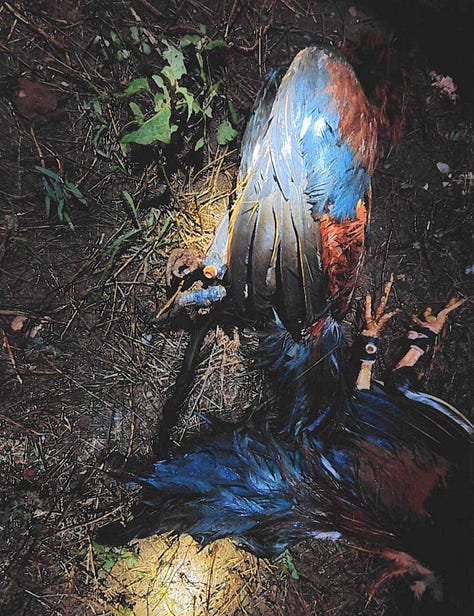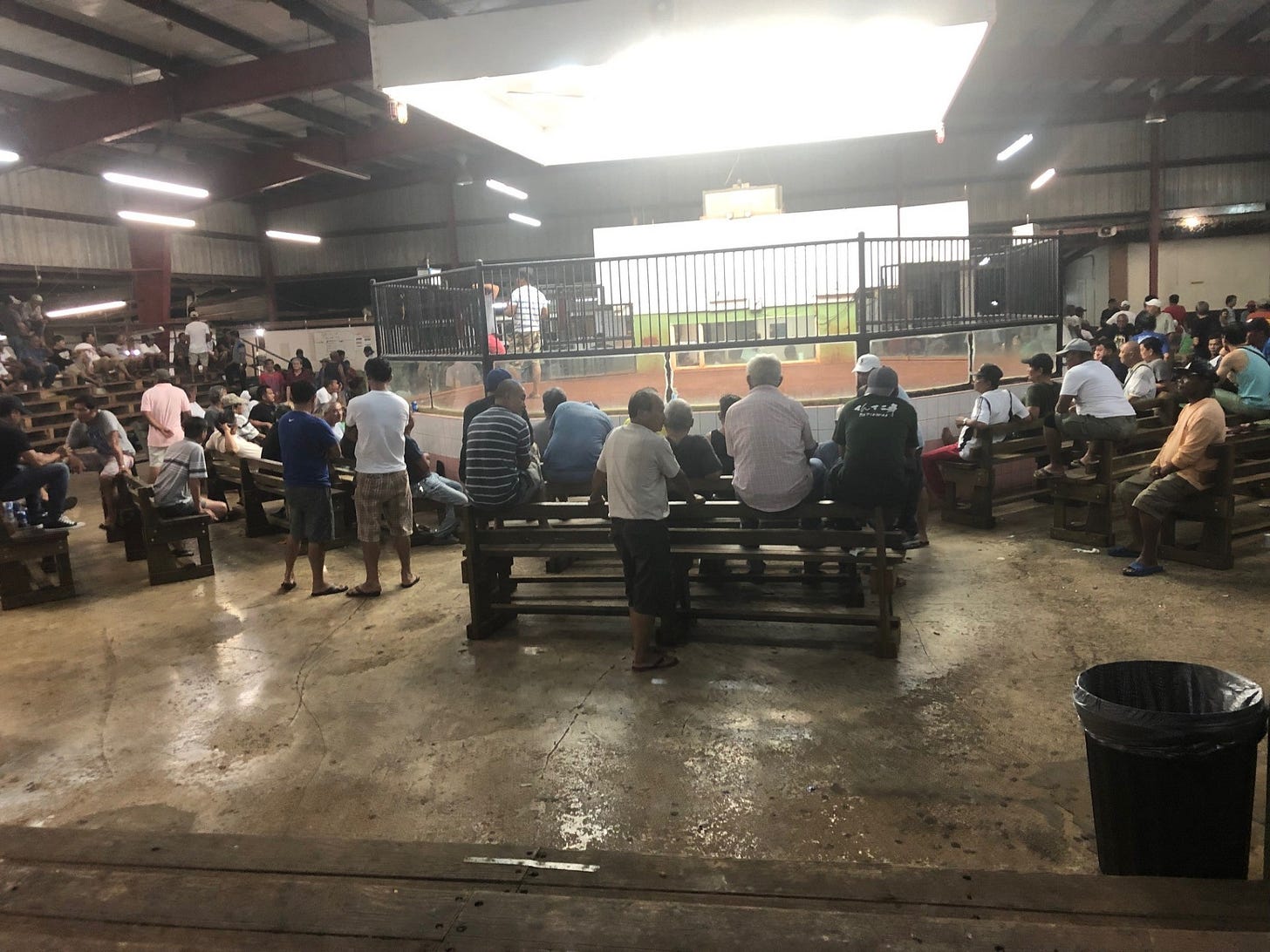Breaking the Chains of Cruelty: The FIGHT Act Takes Aim at Animal Fighting and Organized Crime
How a Bipartisan Bill Can Protect Animals, Safeguard Communities, and Disrupt Criminal Networks
Animal fighting is not just a cruel spectacle—it’s a criminal enterprise that endangers public safety, spreads deadly diseases, and fuels organized crime. From cockfighting pits run by cartels to dogfighting rings hidden in plain sight, these activities exploit animals while leaving a trail of violence, corruption, and economic harm. The bipartisan FIGHT Act (Fighting Inhumane Gambling and High-Risk Trafficking Act) is a critical step toward dismantling these dangerous networks and protecting both animals and communities.
A Crisis of Cruelty and Crime
Animal fighting is a brutal practice where animals are forced to fight for human entertainment and profit. In cockfighting, birds are armed with sharp metal weapons strapped to their legs, while in dogfighting, dogs are trained and drugged to attack until one is maimed or killed. These fights are often accompanied by illegal gambling, drug trafficking, money laundering, and even human trafficking.
The scale of this problem is staggering. The U.S. is home to an estimated 20 million fighting birds, with more than a million shipped annually to cartel-controlled pits in Mexico. Dogfighting rings operate globally, with traffickers exporting dogs bred for bloodlines to countries around the world. Despite federal bans on animal fighting—including in territories like Puerto Rico and Guam—enforcement remains inconsistent, allowing these criminal enterprises to thrive.
The connections to organized crime are undeniable. In 2024 alone:
A Mexican cartel kingpin involved in cockfighting was arrested in California.
A cockfighting derby in Guerrero, Mexico, left six dead and 14 wounded in a mass shooting.
A Coast Guard operation intercepted gang-affiliated smugglers carrying fighting roosters alongside narcotics.
These events underscore how animal fighting serves as a hub for broader criminal activity that threatens public safety.



The Public Health Threat
Animal fighting isn’t just cruel—it’s dangerous for everyone. Smuggled fighting birds have been linked to outbreaks of virulent Newcastle disease and avian flu in the U.S., costing taxpayers billions. For example:
A 2018-2020 outbreak of Newcastle disease led to the culling of 16 million birds and over $1 billion in federal containment costs.
Cockfighting practices create ideal conditions for spreading diseases like H5N1 avian influenza, which can mutate into forms transmissible to humans.
These outbreaks disrupt food supply chains, leading to higher prices for eggs and poultry while putting public health at risk. The United Egg Producers and other agricultural groups support the FIGHT Act because they recognize that ending animal fighting is essential to protecting their industry—and consumers.
Empowering Communities
The FIGHT Act provides innovative tools to help communities combat animal fighting when law enforcement resources fall short. One key provision is the private right of action, which allows citizens to file civil lawsuits against animal fighters under strict guidelines:
Evidence First: Citizens must gather strong evidence and give law enforcement 60 days to act before filing suit.
No Financial Incentive: Fines collected go to the government, not plaintiffs, discouraging fraudulent claims.
Stopping Illegal Activity: Courts can issue orders to shut down animal fighting operations and hold offenders accountable.
This provision empowers residents who have seen their neighborhoods overrun by criminal breeding complexes tied to animal fighting. These operations bring noise disturbances, drug activity, and violence into communities, forcing some families to abandon their homes. The FIGHT Act gives these citizens a way to fight back and reclaim their neighborhoods.

Practical Tools for Change
The FIGHT Act introduces targeted measures designed to dismantle animal fighting networks:
Banning Online Gambling on Animal Fights: This cuts off a major revenue stream for these illegal operations, which generated over $12 billion globally in 2022.
Prohibiting Shipment of Mature Roosters via USPS: Cockfighters exploit loopholes in shipping laws to traffic birds across state lines and internationally. Closing this loophole disrupts their supply chain while reducing the spread of diseases.
Enhancing Forfeiture Laws: Authorities can seize property used in animal fighting crimes, removing the infrastructure needed for breeding, training, or hosting fights.
These tools not only address animal cruelty but also weaken the financial foundations of organized crime networks tied to these activities.
Broad Support for the FIGHT Act
The FIGHT Act has garnered bipartisan support from lawmakers like Senators Cory Booker (D-NJ) and John Kennedy (R-LA) and Representatives Don Bacon (R-NE) and Andrea Salinas (D-OR). It is endorsed by over 750 organizations, including:
Animal Welfare organizations
State law enforcement associations across the country
This coalition reflects widespread recognition that animal fighting is not just an animal welfare issue—it’s a public safety crisis that affects us all.
A Moral Imperative
At its core, the FIGHT Act is about affirming our shared humanity. Animal fighting is a moral failure that normalizes violence while exploiting vulnerable creatures for profit. Congress has strengthened anti-animal-fighting laws five times since 2000, yet gaps remain that allow these practices—and their associated harms—to persist.
By passing the FIGHT Act, we can close those gaps while addressing broader societal issues like organized crime, public health risks, and community degradation.
A Call to Action
If you believe in ending cruelty and protecting communities from crime:
Contact Your Representatives: Call or email your members of Congress and urge them to support the FIGHT Act (H.R. 2742/S. 1529).
Spread Awareness: Share this article with friends and family or on social media.
Report Illegal Activity: If you suspect animal fighting in your community, report it to authorities or groups like Animal Wellness Action or SHARK (Showing Animals Respect and Kindness).
Donate or Volunteer: Support organizations like Animal Wellness Action and the Center for a Humane Economy, which are leading the fight against animal cruelty.
The FIGHT Act represents more than legislation—it’s a chance to take a stand against cruelty while safeguarding our communities from its ripple effects. Together, we can break the chains of cruelty and build a safer, more compassionate world.
Ed Boks is a former Executive Director of the New York City, Los Angeles, and Maricopa County Animal Care & Control Departments, and a former Board Director of the National Animal Control Association. His work has been published in the LA Times, New York Times, Newsweek, Real Clear Policy, Sentient Media, and now on Animal Politics with Ed Boks.





Cock fighting and dog fighting are far more common than people can believe. It’s barely hidden. Any chance of change has to come from within their own culture. We can come up with all the programs and pass all of the laws we want. Unless the local powers that be arrest, prosecute - resulting in significant prison time - we can bang away at it all we want. It’s almost vain.
Other than that, I really need to find my glasses…
I had a long layover in Manila on the way back from a surf trip in Bali and decided to check into a hotel and get some rest. They had tv stations dedicated to this. It was like ESPN but for chicken fighting. I nicknamed the Animal Cruelty Network.